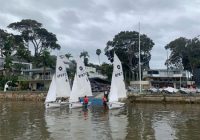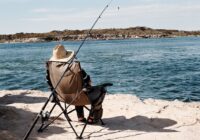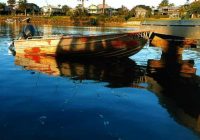TAFE NSW is playing a crucial role to meet the demand for maritime workers as the Federal Government commits to improving future maritime capability, with an Australian owned and crewed strategic fleet.

The Australian Government has recently committed to delivering a Strategic Fleet of up to 12 vessels, to help Australia build resilience to freight disruptions, while supporting the maritime workforce and sovereign capability.
Australia is the fifth largest user of shipping services in the world – relying on sea transport for 99 per cent of exports. With a shortage of Australian flagged ships and high demand for skilled workers – the Government says the Strategic Fleet would be relied on in times of national crisis and emergency, helping get vital goods to affected regions and making us less reliant on international shipping.
TAFE NSW is addressing the maritime skills shortage by training a pipeline of future maritime workers, with Maritime courses offered from entry level to Advanced Diploma in several locations across the state.
“Port Botany, the Port of Newcastle and Port Kembla are important gateways for trade, with over 4,600 commercial vessels docking in these ports each year,” said Mr Greentree.
“There are a wide range of job roles from deckhands, marine mechanics and engineers to logistic and warehousing coordinators that keep this critical supply chain moving.
“In the areas around Port Botany and in the Newcastle and Illawarra regions, marine transport professionals grew by nearly a third in the last 12 months. At TAFE NSW, people can get ahead of the jobs boom and kick start their maritime career choosing from a range of accredited courses providing in-demand skills and industry licensing to get ahead.”
CEO of Maritime Industry Australia Ltd (MIAL) Angela Gillham was a member of the taskforce. She said the report identified the shortage of diverse maritime workers as a concern for Australia’s economic sovereignty.
On the role of TAFE NSW in addressing the maritime skills crisis, Gillham said, “Australia’s maritime training institutions will play a crucial role in skilling the workforce we need to capitalise on the expanding and diversifying activity in this sector.”
“The pipeline of maritime workers they are building is crucial to the success of this Strategic Fleet – and the Australian shipping industry.”
“The gradual decline in our sovereign fleet over the past two decades means Australia is almost entirely reliant on foreign shipping. Recent supply chain shocks, natural disasters, and the critical maritime skills shortage have all demonstrated the need for the increased national resilience that an enhanced sovereign shipping industry will bring.”
“Australia is a Maritime Nation, but without urgent action to promote a strong sovereign merchant maritime capability, we are not able to capitalise on the natural advantages that this brings.”
Commodore Kit Rynd FNI is the Chairperson of the Nautical Institute South East Australia Branch, and said the strategic fleet initiative is a vital investment in Australia’s economic prosperity.
“A maritime nation like Australia needs a vibrant merchant marine backbone, and the Strategic Fleet initiative provides a catalyst for the future of maritime skills in Australia,” he said.
“Our island home and our entire region is dependent on seaborne trade. The pandemic, natural disasters and international tensions have amplified the need for maritime self-sufficiency to keep our inward and outbound trade protected from disruption. East coast wind farms and the strategic fleet investment could be a boon for the Hunter region, leveraging a strong maritime heritage.
“The specialist labour requirements of modern ships warrants investment, and provides a strong, long-term sovereign skillset which is vital to the future of our import and export economies. As one of Australia’s leading providers of maritime training in both coastal and ocean seafaring, TAFE’s role is critical to ensuring the viability of the Strategic Fleet investment.”











